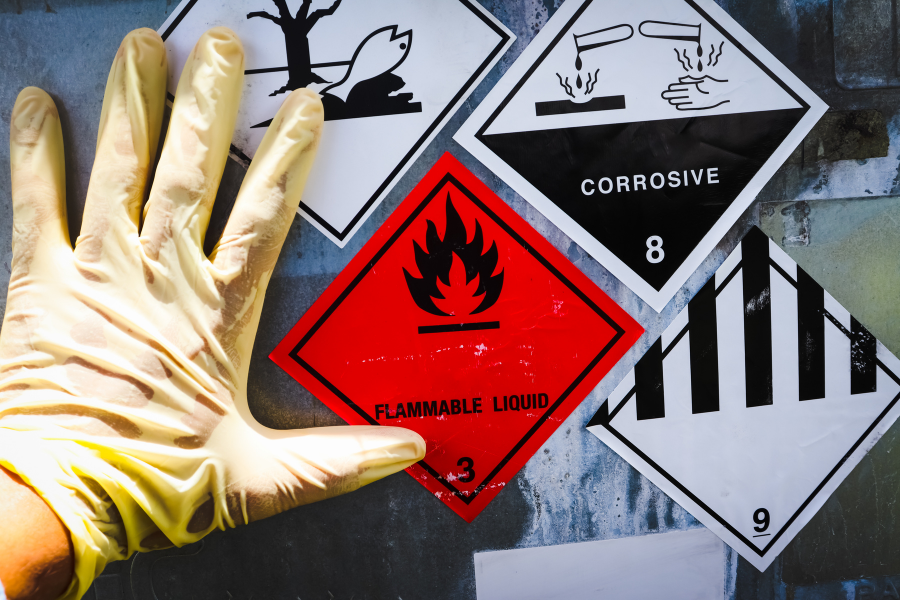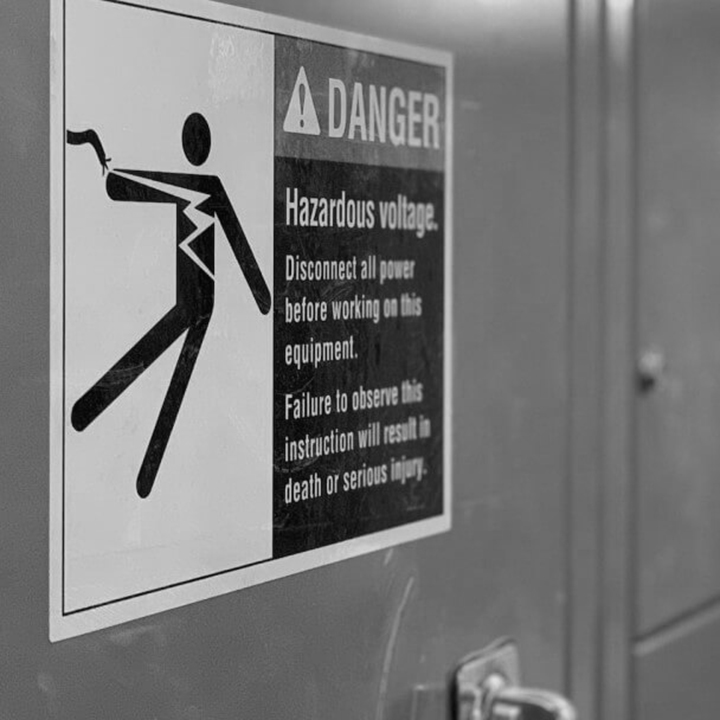Experienced Product Liability Attorney Serving Victims of Product-related Injuries in Florida
Our Florida product liability lawyers and personal injury attorneys’ mission in pursuing product liability cases is to obtain just compensation for our injured clients and to create an economic incentive for those in the stream of commerce to produce safe products and provide sufficient warning of the dangers of their products, ultimately resulting in the saving of lives.
Aggressive Florida Product Liability Attorneys Fighting for Your Rights
The damages the consumer is entitled to receive in a dangerous or defective product case include compensation for:
- Medical expenses
- Lost wages
- Loss of physical capacity
- Pain, suffering, and mental anguish

Whether dealing with a manufacturing flaw or defect, a design flaw or defect, or where a product is unreasonably dangerous because of inadequate instructions or warnings, product liability lawyers ensure that the family and heirs of deceased consumers receive fair treatment under Florida law for injuries caused by dangerous and defective products. Whenever an injury occurs, time is of the essence as it is essential to promptly investigate the accident, preserve evidence, and file a lawsuit prior to the expiration of the statute of limitations.
Call us 24/7 at 800-538-4878 to get your FREE case review.
¿Necesitas ayuda en Español?
What Our Clients Say:

The Abrahamson & Uiterwyk Attorneys and Injury Law Team
“A system of hiring an attorney on an hourly basis rewards inefficiency, creates delays and commonly creates negative issues between the lawyer and the client. Representing clients on a contingency basis in which the law firm earns a percentage of the settlement, however, is much more rewarding for the client and the injury attorneys.”

Client Services Manager
Kelly Anne Kelly
As a Client Services Manager, Kelly’s focus is to enhance client satisfaction by continuously looking for ways to fulfill clients’ needs and concerns.
Understanding Product Liability: Key Considerations for Your Case
Product liability law is designed to protect consumers from defective products that cause harm. If you or a loved one has been injured by a defective product, understanding the fundamentals of a product liability case is crucial. Learn what you need to prove to have a product liability case, who is liable when you buy a defective product, and common examples of defective products that often lead to legal claims.

What Do You Need to Prove to Have a Product Liability Case?
To establish a product liability case, you must prove several key elements. These elements serve as the foundation for your claim and determine whether you can hold a manufacturer, distributor, or retailer responsible for the harm caused by a defective product. Here’s what you need to demonstrate:
- The Product Was Defective:
- Design Defect: This occurs when a product’s design is inherently unsafe, even if it is manufactured correctly. The defect exists from the very beginning, making the entire product line dangerous. For instance, a car model that has a tendency to roll over during normal driving conditions due to its design would fall into this category.
- Manufacturing Defect: This happens when the product is designed safely, but a mistake during the manufacturing process makes it unsafe. Examples include a batch of medications contaminated with a harmful substance or a car seat that is assembled with faulty parts.
- Marketing Defect (Failure to Warn): This involves inadequate instructions or warnings about the product’s risks. If a product does not come with sufficient warnings about its potential dangers, or if the instructions are misleading, the manufacturer can be held liable. An example would be a prescription drug that does not warn users about dangerous side effects.
- The Defect Caused Injury:
- It’s not enough to show that the product was defective; you must also prove that this defect directly caused your injury. This element is known as “causation” in legal terms. For instance, if you were injured by a power tool that malfunctioned due to a manufacturing defect, you must demonstrate that the defect was the cause of your injury and not another factor.
- The Product Was Used as Intended:
- You must also prove that you were using the product in a manner that was intended or reasonably foreseeable by the manufacturer. If the injury occurred because you were using the product in a way that was not intended or warned against, it may be challenging to win a product liability case. For example, if a hairdryer causes injury while being used to dry clothing instead of hair, the manufacturer may argue that the product was not used as intended.
- You Suffered Damages:
- Finally, you must prove that you suffered actual damages—whether physical, emotional, or financial—as a result of the defective product. This can include medical bills, lost wages, pain and suffering, and other related costs. The more evidence you can provide, such as medical records, receipts, and expert testimony, the stronger your case will be.
Proving these elements can be complex, requiring a thorough investigation and often the assistance of legal and industry experts. An experienced Florida product liability attorney near you, can help gather the necessary evidence, build a compelling case, and represent your interests in negotiations or court.
Who Is Liable If I Bought a Defective Product?
One of the most critical questions in a product liability case is determining who can be held liable for a defective product. Liability can extend to various parties within the product’s supply chain, depending on the nature of the defect and the circumstances of the case. Here’s a breakdown of the potential liable parties:
- Manufacturers:
- The manufacturer of the product is often the primary party held liable in a product liability case. This includes the company that designed, produced, or assembled the product. If the defect lies in the product’s design or occurred during the manufacturing process, the manufacturer is typically the one responsible. For example, if a car’s brake system is defectively designed, causing accidents, the car manufacturer would be liable. Understanding how to sue a car manufacturer in these situations involves proving the defect and its direct link to the resulting injuries.
- Distributors and Wholesalers:
- Distributors and wholesalers act as intermediaries between the manufacturer and the retailer. While they do not design or manufacture the products, they can still be held liable if they played a role in distributing a defective product. For instance, if a distributor knowingly sells a batch of defective electronics to retailers, they could be held responsible for any resulting harm.
- Retailers:
- The retailer that sold you the defective product can also be held liable, even if they did not manufacture or distribute it. Retailers are expected to sell safe products and may be held accountable if they sell defective items. This liability exists even if the retailer had no knowledge of the defect. For example, if a toy store sells a toy with small parts that pose a choking hazard, they could be held liable if a child is injured.
- Component Manufacturers:
- If the defect lies in a specific component of a product, the manufacturer of that component can also be held liable. For instance, if a car’s airbag fails to deploy due to a defect in the airbag itself, the manufacturer of the airbag, not just the car manufacturer, could be liable for injuries sustained in an accident. If you’ve been injured due to an airbag failure, consulting with an experienced airbag failure attorney can help you understand your legal rights.
- Marketers and Advertisers:
- In cases involving marketing defects or failure to warn, the parties responsible for marketing and advertising the product can be held liable. If the product’s packaging, labeling, or promotional materials fail to provide adequate warnings or instructions, these entities could be responsible for any resulting harm.
Product liability is often a matter of strict liability, meaning that the injured party does not need to prove negligence. Instead, they must show that the product was defective and that the defect caused their injury. Because liability can extend to multiple parties, it’s crucial to work with an attorney who can identify all potential defendants and pursue the maximum compensation available under the law.
What Are Examples of Defective Products?
Defective products can be found across a wide range of industries and categories. These products pose significant risks to consumers, often leading to injuries, financial losses, and even death. Here are some common examples of defective products that frequently lead to product liability claims:
- Automobiles and Auto Parts:
Defects in vehicles or their components are among the most serious, given the potential for catastrophic injuries. Examples include:- Defective Airbags: Airbags that fail to deploy or deploy improperly, leading to injuries during a collision.
- Brake Failures: Brakes that malfunction, causing the driver to lose control of the vehicle.
- Tire Defects: Tires that are prone to blowouts, increasing the risk of accidents.
- Faulty Ignition Switches: Ignition switches that cause vehicles to shut off unexpectedly, leading to loss of power and control.
- Medical Devices and Pharmaceuticals:
Medical devices and medications are critical for health and well-being, but defects and medical device failures can have life-threatening consequences. Examples include:- Defective Implants: Medical implants, such as hip replacements, that fail or degrade prematurely, leading to pain, further surgeries, or disability.
- Contaminated Drugs: Medications that are contaminated during manufacturing, leading to harmful side effects or lack of efficacy.
- Faulty Medical Devices: Devices such as pacemakers or insulin pumps that malfunction, putting patients at risk.
- Household Appliances:
Defective household appliances can cause fires, electric shocks, or other injuries. Examples include:- Faulty Wiring: Appliances with defective wiring that pose a fire hazard.
- Defective Heaters: Space heaters that overheat or catch fire.
- Exploding Batteries: Batteries in electronics that overheat and explode, causing burns or property damage.
- Children’s Toys and Products:
Products intended for children are held to high safety standards, but defects can still occur. Examples include:- Choking Hazards: Toys with small, detachable parts that pose a choking risk to young children.
- Toxic Materials: Toys made with harmful chemicals or materials that can cause illness or injury.
- Defective Cribs and Strollers: Cribs that collapse or strollers with faulty brakes, leading to injuries.
- Industrial Equipment:
Defects in industrial equipment can cause severe workplace injuries. Examples include:- Malfunctioning Machinery: Equipment that fails to operate safely, leading to crush injuries, amputations, or other severe injuries.
- Faulty Safety Gear: Personal protective equipment (PPE) that fails to protect workers from hazards.
- Food Products:
Defective food products can lead to foodborne illnesses or allergic reactions. Examples include:- Contaminated Food: Food items contaminated with bacteria, viruses, or other harmful substances during processing or packaging.
- Mislabeling: Products that are mislabeled and do not disclose allergens, leading to severe allergic reactions.
- Consumer Electronics:
Defective consumer electronics can pose various risks, from minor inconveniences to serious injuries. Examples include:- Overheating Devices: Laptops, smartphones, or tablets that overheat and pose a burn or fire risk.
- Electrical Malfunctions: Electronics that cause electric shocks due to faulty wiring or components.
- Exploding Devices: Devices such as e-cigarettes or power banks that explode due to battery defects.
How Hiring Our Attorneys can make a Difference in Compensation
| Initial Offer | Final Result | The AU Difference |
|---|---|---|
| $1,500,000 | $5,000,000 | $3,500,000 |
| $0 | $5,000,000 | $5,000,000 |
| $300,000 | $1,600,000 | $1,300,000 |
| $0 | $1,575,000 | $1,575,000 |
| $675,000 | $1,330,000 | $655,000 |
| $0 | $1,260,000 | $1,260,000 |
| $450,000 | $1,250,000 | $800,000 |
| $300,000 | $1,074,168 | $774,168 |
| $500,000 | $1,000,000 | $500,000 |
| $80,000 | $938,077 | $858,077 |
| $125,000 | $690,000 | $565,000 |
| $7,500 | $650,000 | $642,500 |
| $50,000 | $775,000 | $725,000 |
| $58,644 | $525,000 | $466,356 |
| $9,000 | $450,000 | $441,000 |
| $55,000 | $455,000 | $400,000 |
| $65,000 | $650,000 | $585,000 |
| $55,000 | $500,000 | $445,000 |
Contact a Florida Product Liability Lawyer Today
Understanding product liability is essential for anyone who has been injured by a defective product. Whether you’re dealing with a dangerous toy, a malfunctioning medical device, or a car part that failed at a critical moment, knowing what to prove in a product liability case, who might be held liable, and what types of products are commonly involved in these claims is crucial.
Navigating a product liability claim can be complex, requiring a thorough understanding of the law and meticulous gathering of evidence. If you believe you have been harmed by a defective product, it’s important to consult with an experienced product liability attorney in Florida, who can guide you through the process, help identify all potentially liable parties, and work to secure the compensation you deserve.
At Abrahamson & Uiterwyk, we have extensive experience handling product liability cases and are dedicated to protecting consumers’ rights. If you or a loved one has been injured by a defective product, contact us today for a free consultation. We are here to help you understand your legal options and take the necessary steps to pursue justice and compensation for your injuries. If you’re in Gainesville, reach out to a personal injury lawyer in Gainesville who can help.
Florida Injury Case Types
The highly-experienced Florida personal injury law firm of Abrahamson & Uiterwyk also provides:
- Car accident lawyers in Florida
- Guide to Florida Car Accident Law
- Motorcycle accident lawyers in Florida
- Slip & fall lawyers in Florida
- Truck accident lawyers in Florida
- Bicycle accident lawyers in Florida
- Brain injury lawyers in Florida
- Birth injury lawyers in Florida
- Pedestrian accident lawyers in Florida
- Florida Red Light Car Accident Settlement Lawyers
- Construction accident lawyers in Florida
- Wrongful death lawyers in Florida
- Actos injury lawyers in Florida
- Boating accident lawyers in Florida
- Business interruption insurance lawyers in Florida
- Defective drugs medical device lawyers in Florida
- Dog bite lawyers in Florida
- Drunk driving accident lawyers in Florida
- Insurance disputes lawyers in Florida
- Medical malpractice lawyers in Florida
- Metal hip knee implant lawyers in Florida
- Nursing home abuse lawyers in Florida
- Product liability lawyers in Florida
- Work injury / workers comp lawyers in Florida



